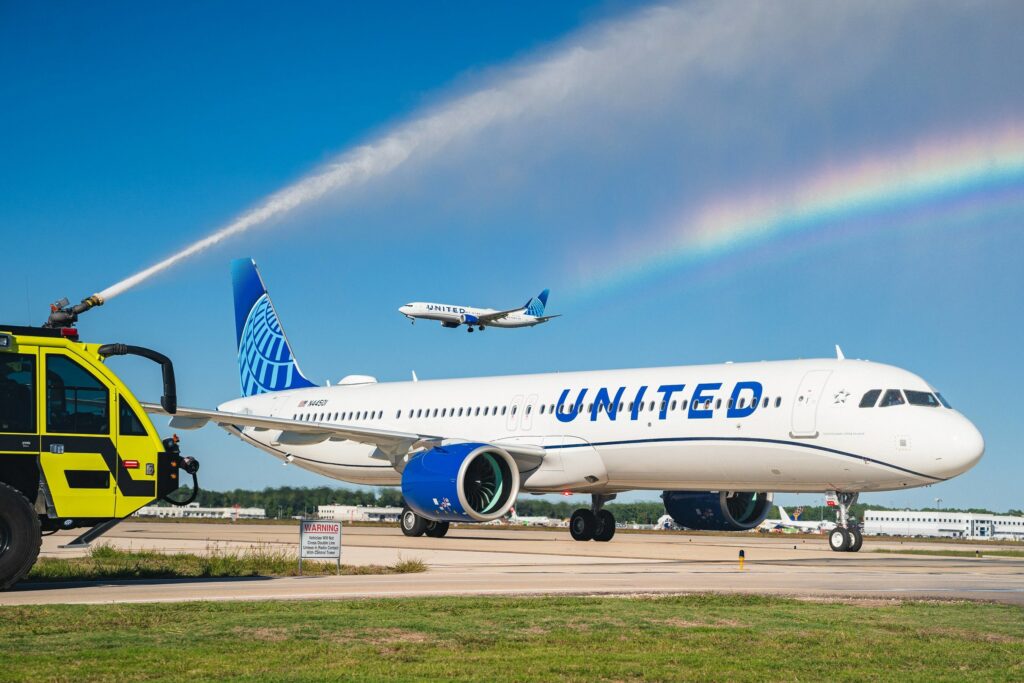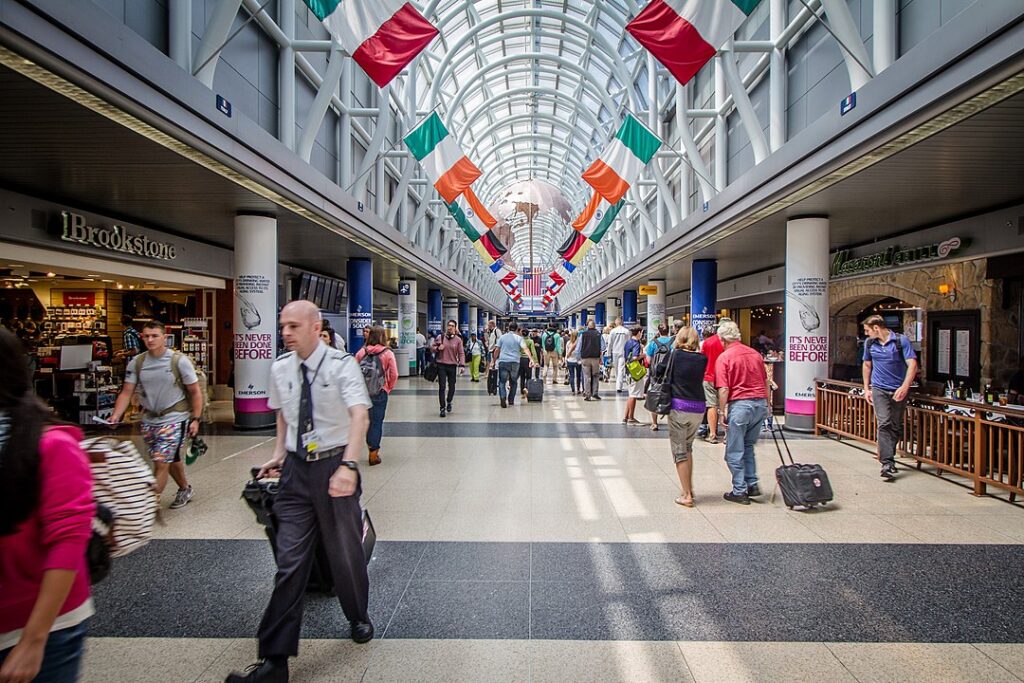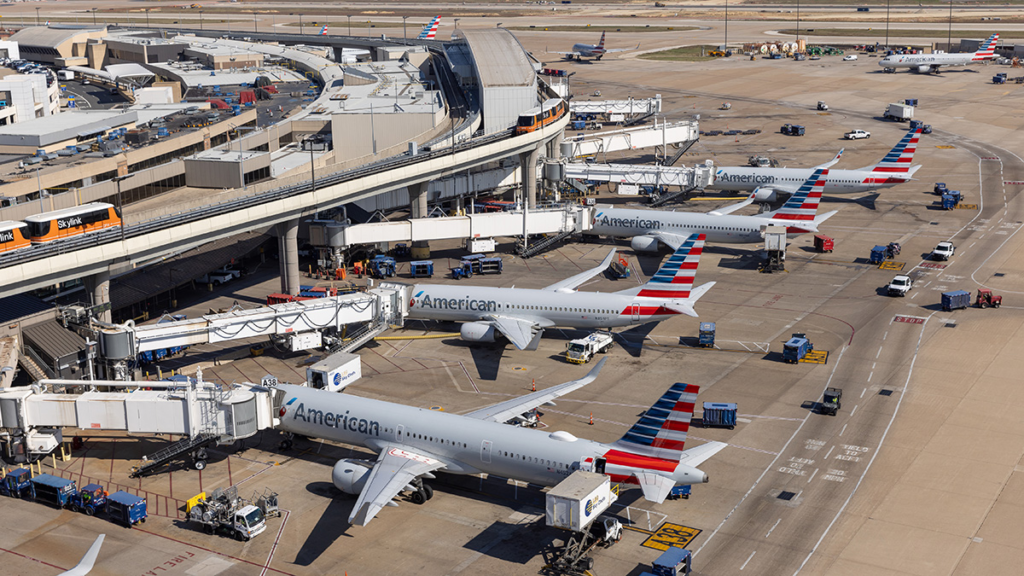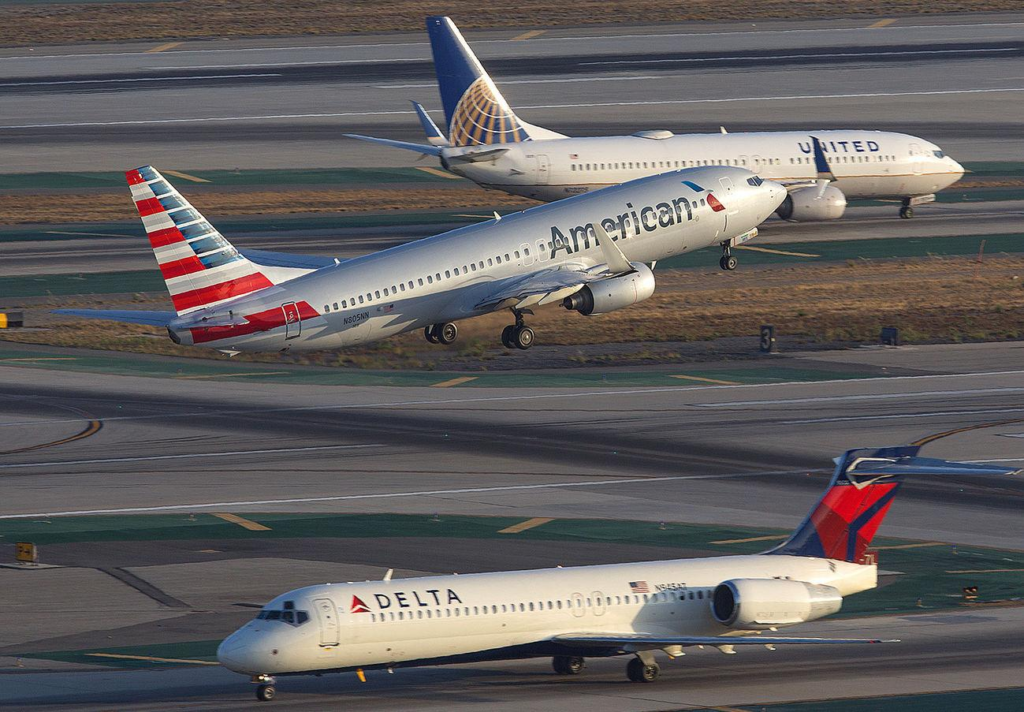CHICAGO- American Airlines (AA) and United Airlines (UA) are advocating for a slowdown or halt to the expansion of Chicago O’Hare that they initially approved in 2018. This request stems from the project exceeding its budget by $1.5 billion.
The carriers appear surprised that Chicago’s substantial public infrastructure endeavor has incurred costs significantly surpassing the initial projections, flaggs ViewfromtheWing.

American United Don’t Want to Modernize Chicago
The current concern is concentrated on the ‘next phase,’ where a 24% projected cost overrun amounts to an additional $1.5 billion beyond the anticipated expenses. Notably, this cost escalation was identified before the commencement of construction on the new terminal.
The entire project’s cost has surged from the initial estimate of $8.7 billion to a projected $12.1 billion. Consequently, the terminal’s cost overrun represents just one component of an overall $3.4 billion increase in the project’s total expense.
The new undertaking involves replacing Terminal 2, a familiar location for many Chicago travelers, currently serving as the point where passengers are directed via airport trains to access rideshares. The proposed terminal is designed to manage both domestic and international flights.
It remains uncertain whether the Mayor of Chicago will insist that the airlines adhere to the existing contract or approve negotiations for its modification.
Given that United Airlines outperforms American Airlines in Chicago, there’s potential for United to expand its influence by challenging American and endorsing increased costs. (Traditionally, elevated costs in Miami have shielded American from low-cost carrier competition, although this has been less true recently.)
Former Chicago Mayor and current Ambassador to Japan, Rahm Emanuel, publicly rebukes the two airlines, emphasizing that a deal is a deal. However, he points out that they endorsed the deal at a specific price point that is already exceeding control and is likely to escalate further.
Such outcomes are common with public infrastructure projects, especially in a city like Chicago, making it unrealistic to expect costs to align with initial projections.

Improved Runway But Needed Affordable Terminal Modifications
Emanuel proposes that since the airlines have already obtained what they desired, namely runway improvements, the city should also achieve its objectives to maintain competitiveness as a hub. This perspective seems unusual, implying that runways are less important in sustaining a top-tier airport.
The primary purpose of an airport is to facilitate quick and cost-effective travel, not necessarily to prioritize lavish spaces and high-end retail.
While aesthetics hold some value, excessive cost overruns negatively impact Chicago’s standing in the competition for air traffic. Such overruns render certain flights marginally profitable and make other connecting hubs more appealing for airlines.
If anything, the sole factor that enhances Chicago’s appeal to consumers choosing it over alternative hubs is Tortas Frontera, representing the only truly exceptional food option in a U.S. airport.

Opposition by Senator
Senator Dick Durbin (D-IL) is expressing strong displeasure, primarily directed at both O’Hare Airport and the airlines that vehemently oppose his initiative to cap credit card interchange fees.
The United CEO, in particular, has been outspoken and disdainful towards the proposed legislation. In response, Durbin is pushing for a federal investigation into frequent flyer program devaluations as a form of reprisal.
On another note, there is skepticism regarding United Airlines’ willingness to fund the new terminal at Dulles. Scott Kirby seems to believe that the concourse they currently operate from, initially intended to be temporary when built 40 years ago, is satisfactory.
In the case of American Airlines, there is a reluctance to make a comprehensive investment in its home at DFW airport. The construction of the new terminal there is only partial, lacking check-in or security facilities.
The C terminal is also undergoing a refresh despite the airport’s leadership deeming it impractical for a 50-year-old building. The CEO of DFW had advocated for constructing a new terminal, utilizing that capacity to demolish and rebuild C, thereby serving as an effective expansion of the airport.
Stay tuned with us. Further, follow us on social media for the latest updates.
Join us on Telegram Group for the Latest Aviation Updates. Subsequently, follow us on Google News.

